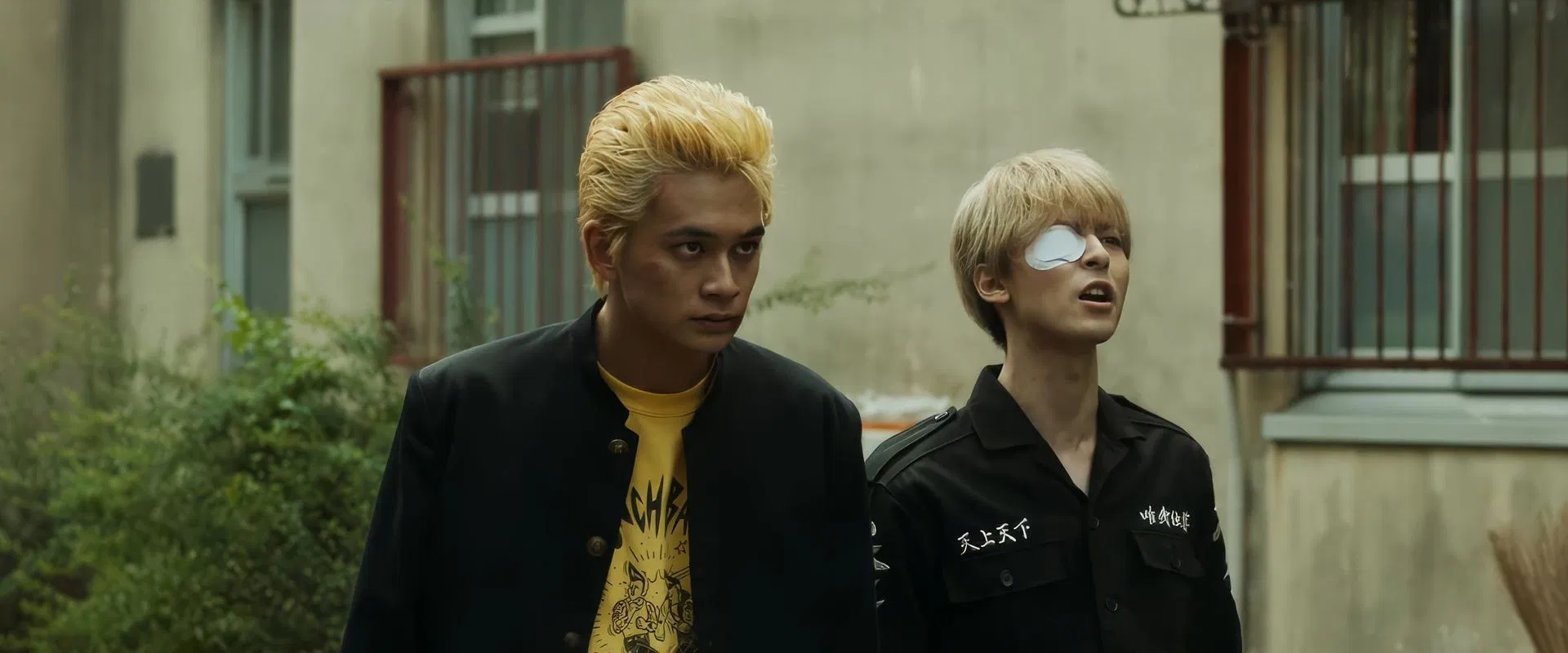Some movies thump and clatter, full of fury and elaborate posturing, but leave you empty—numb with noise. Not this one. “Tokyo Revengers 2: Bloody Halloween – Decisive Battle” comes roaring off the screen like a freight train barreling through a hall of mirrors. It's the finale to a two-part gangland fable, but don’t make the mistake of expecting another muddled, tragic youth melodrama; this thing shimmies with energy and disreputable heart. If the first half was all mood-setting and foreshadowing—a bit of diary scribbling before the storm—this installment throws you chest-deep into the mud, where loyalty and violence tangle until you can’t tell if you’re wiping away blood or tears.
Director Tsutomu Hanabusa, clearly emboldened by the series’ growing pulse, ditches the schoolboy handwringing of the prior chapter and lets the story breathe—a narrative cut loose from its own self-serious ballast. Takumi Kitamura’s Takemichi has gone from simpering time-traveler to a young man baring his teeth at fate, and the transformation is quietly astonishing. We're past exposition and into the real guts of the matter: can a single trembling kid pull his friends from the jaws of an endlessly recycling tragedy? The answer is both predictable and, somehow, deeply moving.
There's a raw, ridiculous beauty in how this film shoves its characters through the wringer. The “ensemble cast” label feels almost too dainty for this gang of beautiful losers—Shōtarō Mamiya’s Kisaki glares like a man who’s spent too long drinking poison, and Nijirō Murakami as Kazutora might as well be punching ghosts. Every fight scene is shot as if the world itself is hanging in the balance; fists connect with the gravity of old friendships and doomed tomorrows. You could accuse the movie of caring too much—which, in a landscape of apathetic, style-for-style’s-sake action films, is an almost revolutionary act.
It’s all set against a Tokyo that’s less a city than a collective fever-dream of regret, grit, and neon. The action sequences—excessive, yes, but never routine—are choreographed like communal exorcisms, with the camera swirling through crumbling back-alleys and storm-drains. At times, the movie threatens to spin out into self-parody; quite a few punches land not just on faces, but directly in the region where melodrama flirts with catharsis. But Hanabusa knows what he’s doing. The music—percussive, surging—rattles your ribcage, and the editing never lets a poignant glance linger so long it curdles.
And beneath the spectacle: a furious meditation on the stain of bad choices, the price of devotion, and the way delinquent boys are always fighting some bigger shadow in themselves. If the first part was clogged with breathless setup, this one repays your patience with the emotional spillover you came for—the do-or-die momentum that propels Takemichi forward is, for once, not just the logic of time-travel but the logic of hearts blown wide open by friendship.
The conclusion is pure pulp opera—and I mean that as a compliment. Kitamura finally gives us a protagonist worthy of the clamor; his Takemichi is both battered child and accidental saint, and when the dust settles, you’re surprised at how much you care. In the end, the movie ties up its loose ends with the messy, addictive reassurance of a good pop song; you leave the theater wrung out and, perhaps, a little delirious.
“Tokyo Revengers 2: Bloody Halloween – Decisive Battle” is a gaudy, unashamed valentine to resilience and second chances—cinema as primal scream therapy for anyone who ever believed friendship could outslug destiny. If you have a pulse, it’ll get to you. If you don’t, I recommend you check for bruises anyway.


